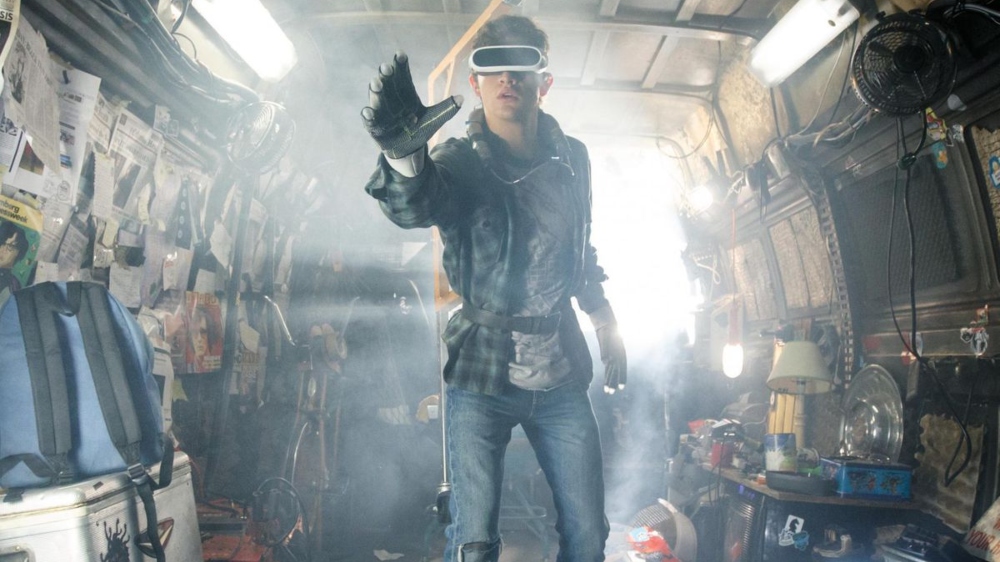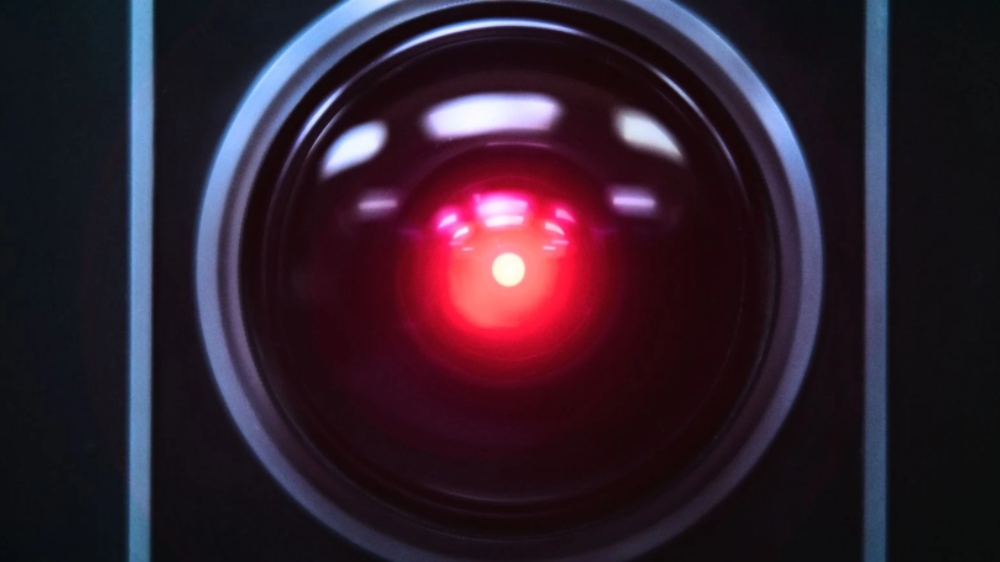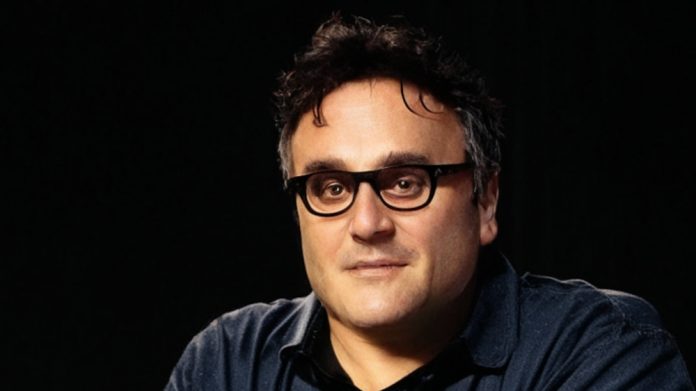Now that the strike is on, we can take comfort in the notion that the studios want to replace writers with artificial intelligence — because writers and the work they create are overrated anyway, right?
It’s bad enough that the studios and streamers seem to believe this, but when one of the industry’s most successful directors starts trumpeting that he thinks AI-generated films could appear within the next two years, you know we’re in trouble.
Joe Russo, who co-directed Avengers: Endgame and several other Marvel movies, was at the Sands International Film Festival last week, and after revealing that he’s on the board of several AI companies, he raved about the possibilities of AI creations, saying, “Potentially, what you could do with it is, obviously, use it to engineer storytelling and change storytelling. So you have a constantly evolving story, either in a game or in a movie, or a TV show.”
Okay. That sounds like a Choose Your Own Adventure kind of thing and something other than cinema, but whatever. More than a little off-putting, sure, but not the most disturbing part. That came right after when he offered up an example of what we might see.
“You could walk into your house and save the AI on your streaming platform,” he said. “‘Hey, I want a movie starring my photoreal avatar and Marilyn Monroe‘s photoreal avatar. I want it to be a rom-com because I’ve had a rough day,’ and it renders a very competent story with dialogue.”
He added that it could even go so far as to render the user in this film or other non-AI-generated projects.
Now, let’s all take a moment to think about this. Aside from the fact that, again, this does not sound like a movie, but rather like someone’s personal sex fantasy, it also involves using the image of one of the most exploited people to ever walk the planet to accomplish this goal. That latter part can maybe be understood because the idea of Marilyn Monroe is so common and at the forefront of minds of a certain type, but the fact that Russo felt that this masturbatory concept would somehow qualify as something worth consuming by a larger audience can’t. On the contrary, it’s hard to see it as anything other than what the society from a dystopian sci-fi novel — like, say, Ready Player One — might consider its primary source of entertainment.

I also don’t especially care for the concept of introducing “the user” into non-AI-generated fare, as it essentially defeats the whole purpose of the original story by allowing someone else to manipulate it. But let’s set that aside because that’s a small part of the issue currently facing the WGA.
The larger issue is that Russo wasn’t talking about this in a cautionary way but as a revelation — a big step forward in storytelling that should be celebrated. This, from a man who has made his living in a creative endeavor, bringing to life characters with literal superpowers while also granting them a real and genuine humanity that has served as wonderful entertainment for hundreds of millions of people across the planet.
The key word there is “humanity,” which is sort of key to the creation of great art. Sure, you can teach an elephant to paint, and there is the old salt about an infinite number of monkeys banging on typewriters until they come up with Shakespeare, but you’re not going to compare either of those to the most beautiful and triumphant works that humans create. The same can be said of AI-created fare, regardless of how badly Russo and his fellow board members who have an eye on making lots of money not only want to believe it but want you to believe it as well.
Over the last few days, more AI-generated fodder has come up, none of it very good. There was the Republican National Committee’s response to President Biden‘s announcement that he’s running for re-election, the Curious Refuge trailer for a fake Wes Anderson Star Wars movie called The Galactic Menagerie, and, of course, this travesty of an AI-created beer commercial.
No matter what your politics are — and they’re irrelevant for the purpose of this conversation — the RNC ad is laughable. The Wes Anderson thing is mildly amusing until you realize that it fails to capture anything about what makes either his work or Star Wars appealing, and plays instead as a tone-deaf joke. And the less said about the intense creep factor of the beer commercial the better. Seriously. Yikes.
I’m not going to say that AI can’t help at all in the creative process, because that would be silly. AI can analyze what works and what doesn’t in a story based on an audience’s emotional reaction, it can be used to identify similar stories that have already been published, and it can even be used to teach students about emotional rhetoric and push them to think differently.
But to say that it can replace the writer entirely is to discount what makes art great, while also literally taking away the humanity in that work they’ve labored so hard to create. The humanity — it’s important to reiterate — that makes it so appealing to audiences in the first place.
Russo has co-directed nine features with his brother, Anthony. Take away the first one, the little-seen indie Pieces, and that’s eight, half of which have been Marvel movies (Captain America: The Winter Solider, Captain America: Civil War, Avengers: Infinity War, and Avengers: Endgame). That leaves Welcome to Collinwood, You, Me, and Dupree, Cherry, and The Gray Man. There are also dozens of television episodes, most of them comedies.
I am a big fan of the brothers’ Marvel work and much of their TV offerings, especially their episodes of Community, and the Emmy they won for directing the pilot of Arrested Development was well deserved. But the non-MCU movies? That’s a big 0-for-4 for me.
Which leads me to believe that, when they’re working with someone else’s vision — that of a strong producer like Kevin Feige who has a system in place and a grand plan towards which he is working, or a TV showrunner like Mitch Hurwitz (Arrested Development) or Dan Harmon (Community) who ultimately calls the shots and dictates the final product — they excel. When they’re not, they don’t.
So it makes some sense that Russo would be so enamored of AI since it literally takes the creative decisions out of human hands and gives them to a machine.

Storytelling is an art. Some people are exceptionally good at it, but most are not. Plenty of those latter folks are regularly employed as storytellers in Hollywood and make a good living in spite of their own considerable limitations. But what they each bring to the table, regardless of their individual level of skill within the medium, is humanity. Empathy. An understanding of the human condition that allows at least some of the people who consume that particular form of entertainment to identify with the characters these storytellers have created and the tales they have spun.
Artificial intelligence cannot do this, and I hazard to say that it never will, simply because of the literal artificiality of its foundation (it’s literally in the name).
Art is human. Take the humanity out of it, and it’s not really art. Pornography is a different matter, because while I won’t say that it can’t be art, it’s far less reliant on storytelling and, because of that, can be created artificially. I mean, how hard is it to create two humanoids going at it? Come on.
But the fact that Russo seems to be buying into this so completely is bothersome. Leaving his financial interest out of it, it’s frustrating to think that someone as successful as he is seems to have so little faith in the future of human storytelling that he’s willing to surrender it to a computer.
In the movies, TV, and books — all mediums, really, and all genres, too — the creation of AI never ends well for us. A lot of those stories, in fact, seem to start out just like this, with someone in a position of power proclaiming its greatness. That person ends up being the villain who sells out humanity for a buck.
It’s ironic, then, that a director best known for making a bunch of superhero movies is playing that role here.
 Neil Turitz is a journalist, essayist, author, and filmmaker who has worked in and written about Hollywood for more than 25 years, though he has never lived there. These days, he splits his time between New York City and the Berkshires. He’s not on Twitter, but you can find him on Instagram @6wordreviews.
Neil Turitz is a journalist, essayist, author, and filmmaker who has worked in and written about Hollywood for more than 25 years, though he has never lived there. These days, he splits his time between New York City and the Berkshires. He’s not on Twitter, but you can find him on Instagram @6wordreviews.
You can read a new installation of The Accidental Turitz every Wednesday, and all previous columns can be found here.



